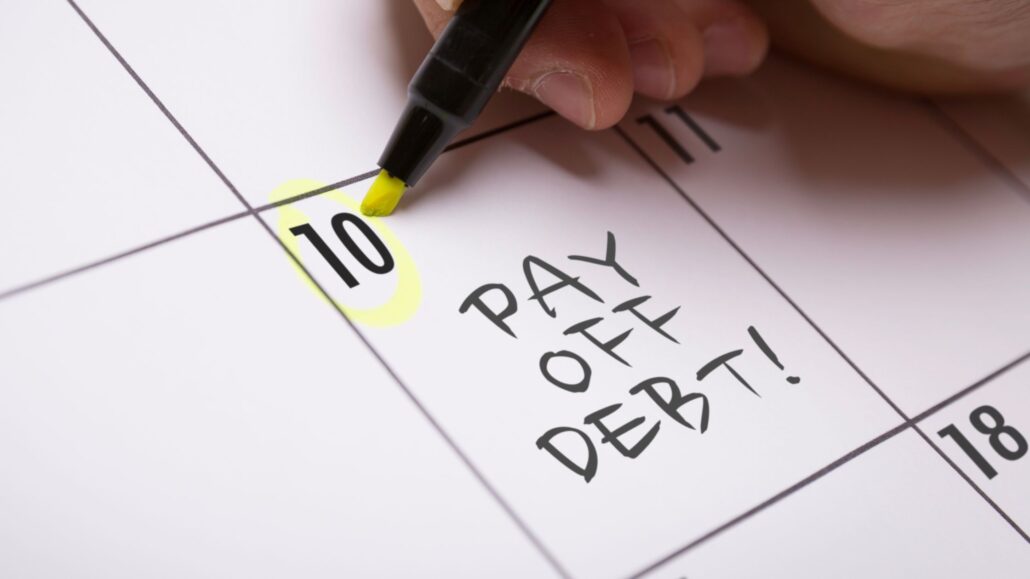This post may contain affiliate links.We may earn little commission or products from the companies mentioned in this post.
When you have a lot of debt to pay and it will take a long while before you are done with it. Can you really not get burned out while paying it off? It will take the special grace of God for you not to. However, you can do it. There is a way to pay off debt with getting burned out and you are about to learn how.
But let see some few things first. Things like what a debt pay off burn out feels like and the signs for you to know when you are starting to be burned out.
how to not feel burned out while paying off debt
What a debt pay-off burnout feels like
Debt payoff burnout is a type of emotional and mental exhaustion that occurs when someone feels overwhelmed by the demands of aggressively paying down debt. It can be especially common when debt repayment goals require long-term sacrifices, and the journey feels never-ending. Here’s an overview of why this happens and strategies to overcome it.
- Losing motivation to stick to the debt plan
- Feeling guilty about spending even small amounts on yourself
- Increased stress, anxiety, or irritability about money
- Wanting to give up or abandon the payoff plan
- Becoming indifferent toward budgeting and tracking
Causes of Debt Payoff Burnout
- Strict Budgets: Cutting expenses too deeply for extended periods can leave no room for enjoyment.
- Slow Progress: Large debts like student loans or credit cards can take years to pay off, leading to frustration.
- Lack of Rewards: Focusing solely on debt repayment without small wins or self-rewards can drain motivation.
- Unexpected Setbacks: Emergencies or life changes (like medical expenses) can disrupt repayment plans.
- Social Isolation: Saying “no” to social activities to stay within budget can make the process lonely.
This is how you pay off debt without burning out
Let’s roll!
1. Set Realistic Goals
- Break it into smaller milestones: Instead of focusing on the entire debt amount, divide it into manageable chunks (e.g., “pay off $500 in three months”).
- Celebrate progress: Each milestone you reach is a win—celebrate with a low-cost reward (like a movie night or your favorite treat).
2. Use the Debt Snowball or Avalanche Method
- Debt Snowball: Pay off the smallest debt first, then roll the payment into the next debt. Quick wins keep you motivated.
- Debt Avalanche: Prioritize high-interest debt to save more in the long run. Knowing you’re reducing interest helps you feel accomplished.
3. Build a Buffer for Fun
- Budget for enjoyment: Allocate a small amount each month for hobbies, outings, or treats. It’s okay to have fun while paying off debt.
- Use guilt-free spending accounts: Having a “fun fund” prevents burnout and ensures you don’t feel deprived.
4. Find a Side Hustle You Enjoy
- Choose a side job or hobby you actually like (e.g., freelancing, tutoring, or reselling items). It can provide extra income without draining your energy.
5. Automate Payments
- Set up automatic payments so you don’t stress about missing due dates. This can reduce mental fatigue from keeping track of multiple deadlines.
6. Track Your Progress Visually
- Use a debt tracker: Create a chart, graph, or even a coloring sheet to visually mark progress. Seeing your effort pay off can boost motivation.
- Focus on how far you’ve come: Remind yourself of the progress made, even if it feels small.
7. Focus on Needs vs. Wants
- Mindful spending: Distinguish between necessary expenses and unnecessary ones, but allow yourself some flexibility to enjoy life.
- Set boundaries: Avoid social comparisons that push you into overspending.
8. Join a Support Group or Community
- Being part of a financial community (like online forums or personal finance groups) can provide encouragement and accountability.
9. Use a “Debt-Free” Affirmation or Mantra
- Repeating a positive affirmation (like “Every day I’m closer to being debt-free”) can help shift your mindset when things feel tough.
10. Include Self-Care in Your Routine
- Exercise, sleep, and relaxation: Take care of your mental and physical health to manage stress.
- Practice gratitude: Journaling a few things you’re thankful for helps shift your focus from stress to progress.
11. Build a Small Emergency Fund
- Even a small fund ($500-$1,000) prevents setbacks when unexpected expenses arise. This reduces the stress of derailing your debt plan.
12. Give Yourself Grace
- It’s okay if you slip up occasionally—life happens. Don’t be too hard on yourself. Adjust your plan if needed and keep going.
13. Switch Up Payment Methods
- If making extra payments every month feels monotonous, try paying bi-weekly or after every paycheck. This can feel more dynamic and rewarding.
14. Reward Yourself for Debt-Free Habits
- If you cook at home for a week instead of eating out, reward yourself with a small treat (like a favorite snack). This reinforces positive behavior.
15. Shift the Focus to Long-Term Goals
- Instead of obsessing over what you’re giving up, focus on what you’ll gain once debt-free—like freedom, peace of mind, or new opportunities.
In conclusion
Debt pay off burnout is a real thing. You can feel it and it can affect your journey to financial freedom. Now you can identify them and be able to stop them from stopping you from becoming debt-free.



